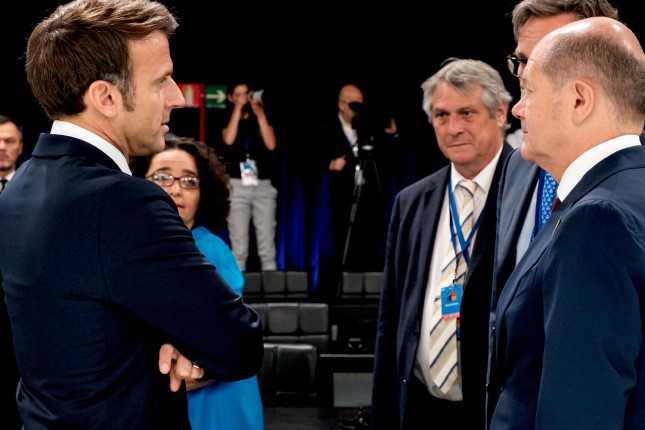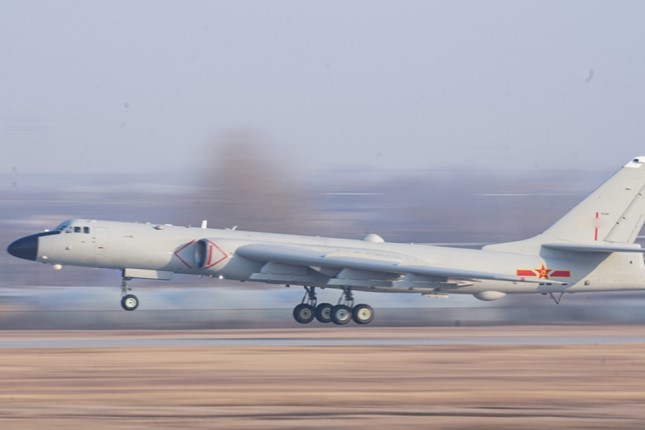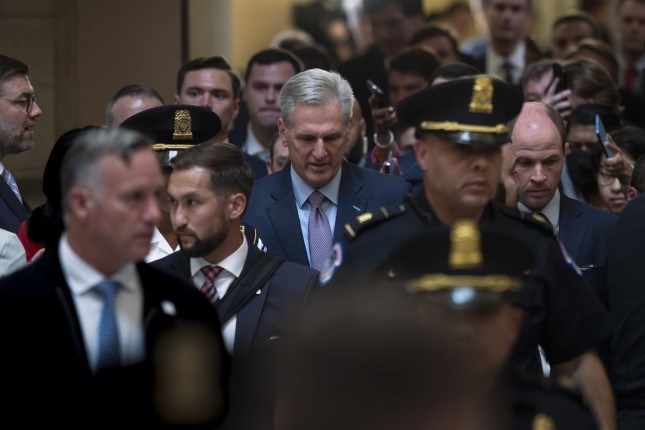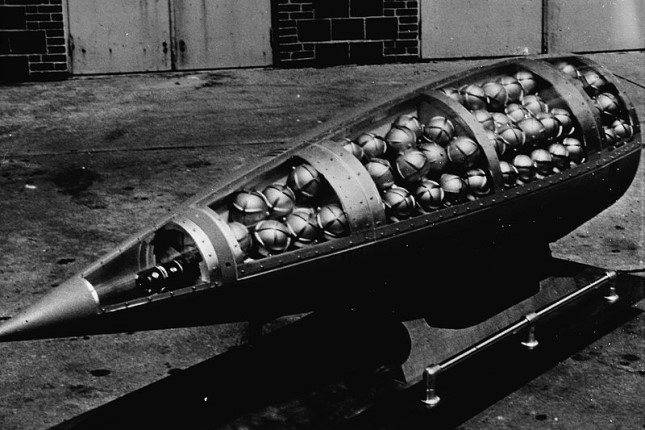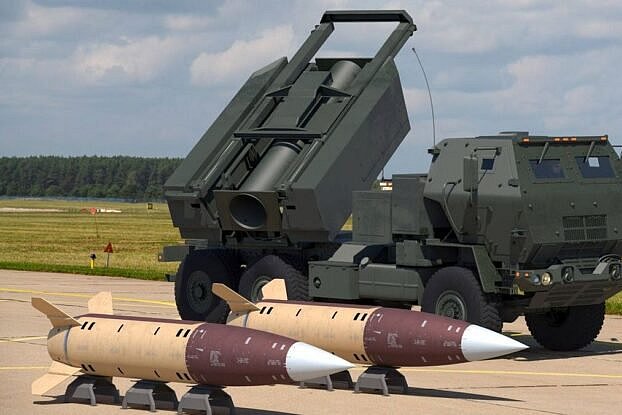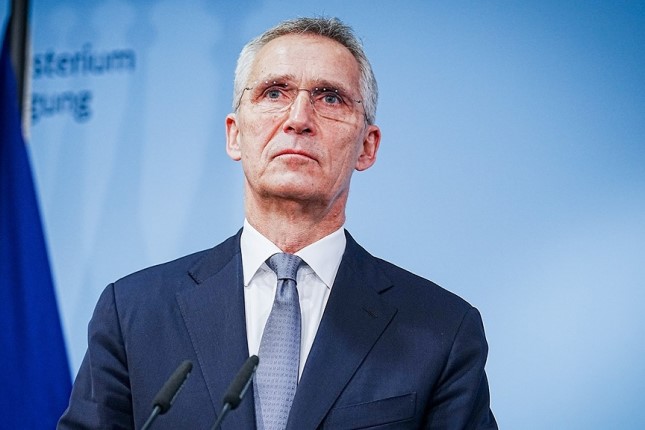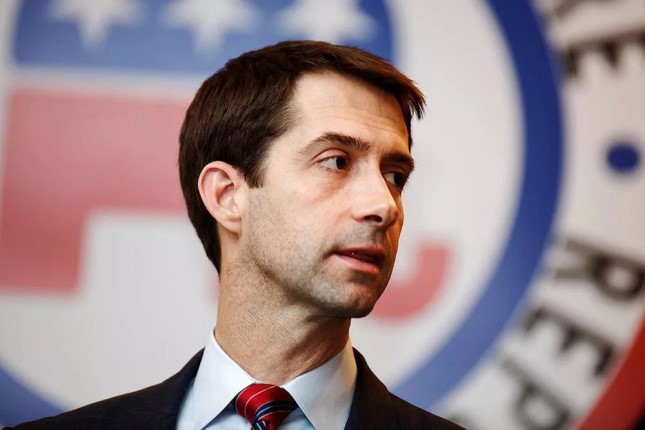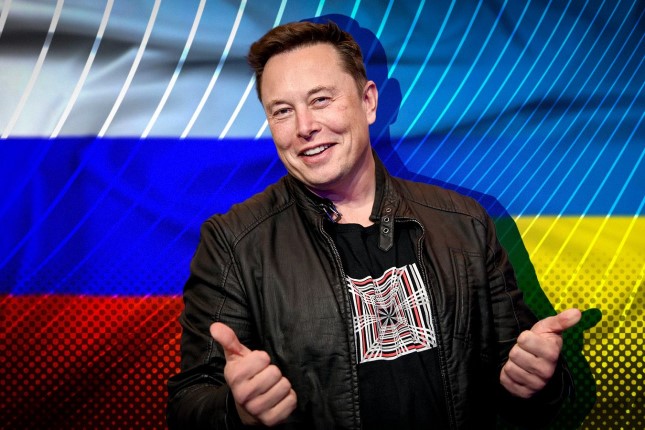With these words, William Shakespeare, the immortal bard, captures the psychology of men who, believing they are confronted with a situation for which there is no hope of resolving, undertake actions that will inevitably lead to their death.
Although set in 14th century Mantua, Italy, Shakespeare’s tragedy could easily have been transported in time to present day France, where French President Emmanuel Macron, in the role of a modern Romeo, after learning of the demise of his true love, Ukraine, decides to commit suicide by encouraging the dispatch of NATO troops to Ukraine to confront Russia militarily.
Macron was hosting a crisis meeting last week, convened to discuss the deteriorating conditions on the battlefield in Ukraine following the Russian capture of the fortress city of Adviivka. The meeting was attended by senior representatives from NATO member states, including the U.S. and Canada.
“We should not exclude that there might be a need for security that then justifies some elements of deployment,” Macron said during a press conference convened after the meeting. “But I’ve told you very clearly what France maintains as its position, which is a strategic ambiguity that I stand by.”
The other participants of the meeting immediately rushed forward to announce that, from their perspective, there was no “strategic ambiguity” — the dispatch of NATO forces to Ukraine was not on the table.
German Chancellor Olaf Scholz, who attended the Paris talks, rejected Macron’s proposal out of hand. “What was agreed from the beginning among ourselves and with each other also applies to the future,” Scholtz declared, “namely that there will be no soldiers on Ukrainian soil sent there by European states or NATO states.”
Scholz’s statement was echoed by other NATO leaders, leaving France standing alone to bear the consequences of Macron’s “strategic ambiguity.”
Even as NATO rushed forward to bring clarity to Macron’s stance, Russia made it quite clear what the consequences of any precipitous deployment of NATO forces to Ukraine would be. Dmitri Peskov, the Kremlin spokesperson, declared that, in the event of any NATO deployment into Ukraine, “we should not talk about the probability but about the inevitability [of a direct war with NATO]. That’s how we assess it.”
Peskov noted that most NATO nations participating in the Paris conference “maintain a fairly sober assessment of the potential dangers of such an action and the potential danger of being directly involved in a hot conflict, involving them on the battlefield.”
He also noted Macron’s stance regarding “the need to inflict a strategic defeat on Russia,” an objective shared by the U.S. and the NATO secretary general.
Putin Responds
In his annual address to the Russian Parliament, delivered a few days after Macron gave his press conference, Russian President Vladimir Putin removed any ambiguity as to what the consequences of any NATO intervention in Ukraine would be.
“We remember the fate of those who once sent their contingents to the territory of our country,” Putin said, referring to the past invasions of Russia by Hitler and Napoleon. “But now the consequences for potential interventionists will be much more tragic.”
And, just to drive the point home, Putin went on to describe Russia’s most recent advances in the field of strategic nuclear weapons — a new nuclear-powered cruise missile, the Burevestnik, which is in the final stages of development, and the deployment of Sarmat heavy intercontinental ballistic missiles and Avangard hypersonic warheads that are immune to Western anti-missile defenses.
Putin pointed out that two of these new Russian weapons — the Zircon and Kinzhal —have seen combat duty in the Ukrainian conflict.
The NATO leaders “must grasp that we also have weapons capable of striking targets on their territory,” Putin said. “Everything they are inventing now, spooking the world with the threat of a conflict involving nuclear weapons, which potentially means the end of civilization — don’t they realize this?”
The clearest evidence available that NATO leaders do not realize the consequences of their actions comes in the form of a transcript of a conversation, released by the editor-in-chief of RT, Margarita Simonyan, on her page on the VK social network, which has four senior German military officers discussing how they planned to implement instructions given to them by German Defense Minister Boris Pistorius regarding the delivery of the Taurus cruise missile to Ukraine.
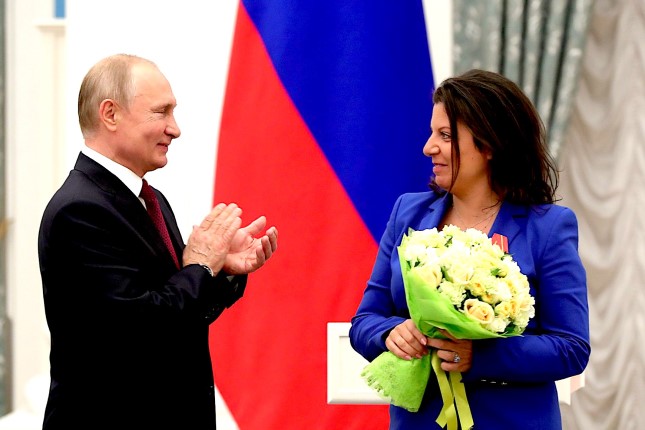
Putin presenting RT’s Simonyan with an award in May 2019. Photo: Kremlin.ru / Wikimedia Commons / CC BY 4.0.
As the transcript shows, the assurances given by German Chancellor Scholz that Germany would not become directly involved in the Ukraine conflict were little more than a lie.
In addition to discussing the logistical issues involving the transfer of these weapons, the German officers discussed their possible employment, including how they could be used to attack the Crimea Bridge connecting the Crimean Peninsula with southern Russia. “The [Crimean] bridge in the east is hard to hit, as that’s quite a narrow target, but the Taurus can do that, and it can also hit ammo depots,” one of the German officers noted, prompting a reply by another, who declared that “there is an opinion that the Taurus will handle that (hit the Crimean Bridge) if the French Dassault Rafale fighter jet is used.”
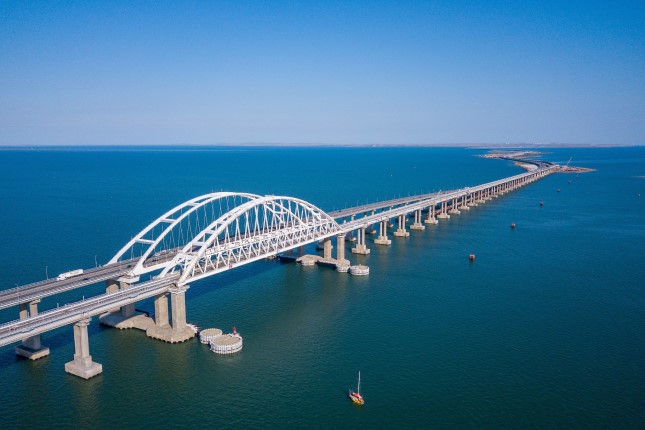
The Crimean or Kerch Strait Bridge connecting the Taman Peninsula of Krasnodar Krai in Russia with the Kerch Peninsula of Crimea. Photo: Rosavtodor.ru / Wikimedia Commons / CC BY 4.0.
Scholz has been reticent about joining Britain and France, which have transferred Storm Shadow and Scalp long-range missiles, respectively, to Ukraine.
“What is being done in the way of target control and accompanying target control on the part of the British and the French can’t be done in Germany,” Scholz said after the Paris gathering, referring to the indirect role played by Britain and France in enabling Ukrainian pilots to launch the Storm Shadow and Scalp missiles from modified SU-24 aircraft.
“Everyone who has dealt with this system knows that,” Scholz noted, implying the need for a direct role by German military personnel in the targeting and operation of the Taurus missile.
“German soldiers must at no point and in no place be linked to targets this (Taurus) system reaches,” Scholz said, adding “not in Germany either.”
Scholz, it appears, understands the potential consequences of German involvement in the targeting and operation of any Taurus missiles used by Ukraine against Russia.
“This clarity is necessary,” Scholz said. “I am surprised that this doesn’t move some people, that they don’t even think about whether, as it were, a participation in the war could emerge from what we do.”
Clearly there is a disconnect between the German chancellor and his defense minister.
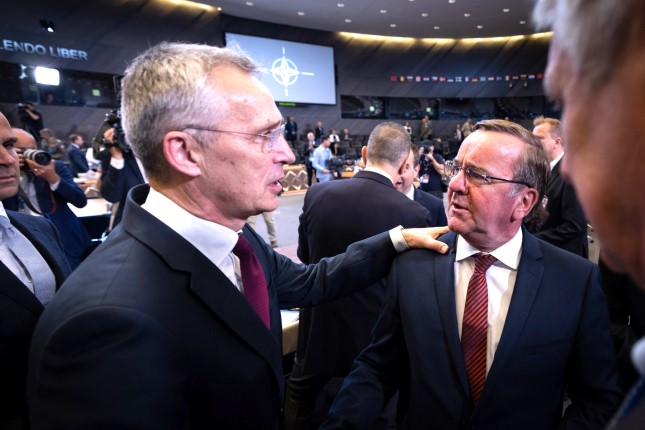
NATO Secretary General Jens Stoltenberg and Pistorius in June 2023. Photo: NATO / Flickr / CC BY-NC-ND 2.0.
In case the German officers and their minister failed to “realize” the potential consequences of their actions, the Russian military, a day after Putin’s address to the Russian Parliament, carried out what it called “a combat training launch of a mobile-based solid-propellant intercontinental ballistic missile PGRK Yars, equipped with multiple warheads.”
The Yars missile, launched from the Plesetsk test facility located south of Saint Petersburg, can carry between three and six independently targetable nuclear warheads.
According to the Russian Ministry of Defense, “The training warheads arrived at the designated area at the Kura training ground on the Kamchatka Peninsula” after flying a range of nearly 4,200 miles.
When I was a weapons inspector, back in 1988-1990, working at the Votkinsk missile production facility, we inspected the SS-25 “Topol” intercontinental ballistic missile, the predecessor of the “Yars” missile recently tested by Russia.
When the first three missiles inspected exited the factory, the U.S. inspectors took to naming them after American cities that could ostensibly be their targets — Pittsburgh, Des Moines and Chicago. The powers that be, back in Washington, D.C., quickly discouraged this practice, given the sensitivity that accrues to the issue of thermonuclear war.
One must wonder if the Russian soldiers responsible for launching the Yars missile took the time to name their warheads, and if they did, which cities would have been chosen to christen them.
There is no doubt that had the Russian soldiers turned to former President Dmitri Medvedev for advice after he received news about the intercepted conversation, the warheads would likely have been named after German cities — Munich, Berlin, Frankfurt, Hamburg, Nuremburg, Dusseldorf.
“The eternal enemies, the Germans, have become our archenemies again,” Medvedev fumed in a post on his Telegram channel.
The Germans would be well advised to reflect long and hard on their actions, actions which could precipitate a conflict that, as Putin has noted, “potentially means the end of civilization — don’t they realize this?”
Don’t they?
“O mischief, thou art swift, to enter in the thoughts of desperate men!”
Photo: French President Emmanuel Macron and German Chancellor Olaf Scholz, right, in 2022 © NATO / Flickr / CC BY-NC-ND 2.0.
Source: Consortium News.
